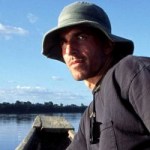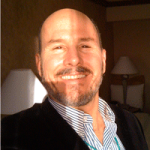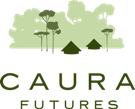Purpose
Caura Futures supports the conservation of the Caura River Basin ecosystem by providing training and tools to safeguard indigenous knowledge, improve human health, and promote good ecosystem stewardship.
In these endeavors, local Ye’kwana and Sanema people make all decisions regarding activities to be realized in their communities. They curate and control all indigenous knowledge archives, and they review and approve all introduced technologies. In Venezuela, we work with an independent non-profit organization, Caura Weichojo.
Founded in 2005, Caura Futures, Inc. is an IRS-approved 501(c)(3)non-profit organization.
Background
People
Emilio Rodríguez was born upriver from the Ye'kwana community of Santa Maria de Erebato. He is an expert dugout shaper, native ecologist, conservationist, and leader of an effort to build a library of Ye'kwana cultural knowledge. Emilio's passion for saving his culture from a slide into oblivion provided the motivation for the establishment of Caura Futures. He is president of Caura Weichojo, a Venezuelan non-profit organization, and founder of the community of Edowinña.

Tarek Milleron is a native of Berkeley, California. He holds a Ph.D. in Ecology from Utah State University and conducted his dissertation research, on the context dependence of tropical tree seed dispersal and survival, based in the remote community of Edowinña, in the Caura Basin. He has also done field work in Panama and French Guiana. Tarek designed the palm climbing gear and fuel tank. He founded Caura Futures in 2005 and serves as its director.

Philip Desenne, born in Venezuela, is a research ornithologist and conservation ecologist. He has studied the conservation status of the Parrot family throughout Venezuela and conducted his field research alongside Ye'kwana and Sanema people on the foraging ecology and diet of parrots in the Caura River Basin. He is currently a senior manager for academic technologies at Harvard University. He is a co-founder and vice-president of Caura Futures.
